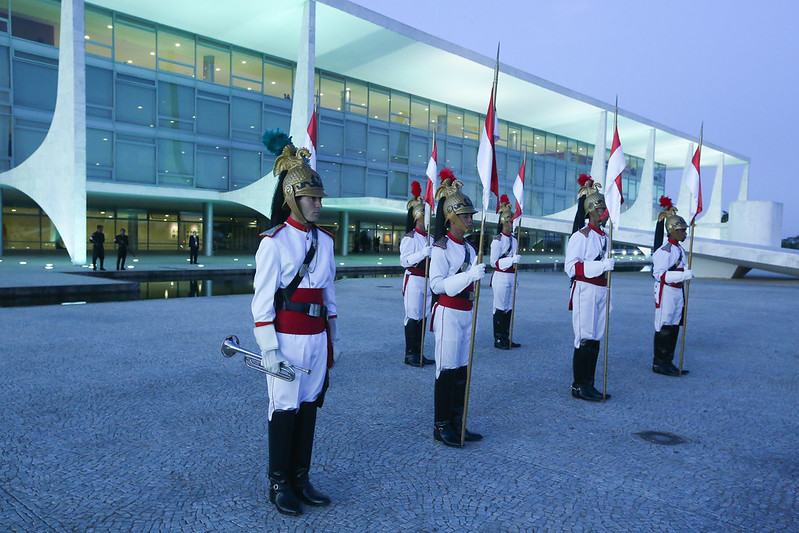Brazil is experiencing an unprecedented social and political cataclysm – at least since the Redemocratization, when the 1988 Constitution put an end to the dictatorial military regime installed in a 1964 coup d’état against then president João Goulart.
The redemocratization process established new constitutional and legal bases for broadening concepts of citizenship and democratic political participation but failed to deal effectively and broadly with the forces that established and maintained the dictatorial regime.
Jair Messias Bolsonaro, Brazil’s current president, is the byproduct of an ideology that planted its feet in the barracks and is still alive, having survived the end of the military dictatorship. The fact that the democratic forces did not position themselves with a democratic ideology inside the barracks was and continues to be a huge mistake, and Brazilians are now paying the price.
Since 1988, the Brazilian Armed Forces have been treated as “annexes” or “separate” structures. But they never fully moved away from political-administrative positions, and now the government has several thousand military personnel occupying strategic positions in public and civil administration – a category aligned with Bolsonaro’s ideology and that reinforces his discourses of rupture with democracy and with other institutions.
Massive government disapproval, which has now reached its highest levels since Bolsonaro’s inauguration, essentially includes sectors of civil society. Dissensions within the military are minimal and suppressed by discourse aligning with the president. The question is: can the civilian forces counterbalance the armed structures? The ramifications of this question are many and largely unclear.
Besides the military, there is a minority in civil society that still supports the president. And it is no less dangerous. This support is unconditional, unrestricted, and often fanatical. This small social fraction could, for the military sector, demonstrate “popular support” for an eventual coup d’état.
The rhetoric of discredit against elections is already beginning, including as a reaction to the fact that Bolsonaro loses in all scenarios projected against any possible opponent in the 2022 presidential election. And, of course, former President Luis Inácio Lula da Silva is now the biggest opposition name and the strongest candidate for Bolsonaro’s removal.
Regarding the pandemic, the current administration actively worked to discredit vaccination and jacked up the prices of immunizers while simultaneously spreading the view that the pandemic was just a “little flu.” In a country like Brazil, which was once regarded as a world reference in mass immunization campaigns, this policy shift was drastic and is helping to further erode the president’s image along with the rest of the current government.
But this does not mean that Bolsonaro is already defeated. Just as he, individually, is an erratic and unpredictable figure, we must understand that military institutions can be just as unpredictable, having promoted several institutional ruptures throughout Brazil’s history.
What was not done in 1988 must be done now, by 2022 at the latest. We must reexamine military institutions and the ideology that permeates within them, define more clearly the armed forces’ functions and their role in Brazilian society. Otherwise, more leaders like Bolsonaro may emerge.
It may be that no military coup will happen. After all, there was an attempt to organize a rupture on September 7 this year that obviously failed. But dealing with the military institutions more broadly and democratically is a task that does not depend on any military coup and is in fact aimed at preventing and avoiding the worst.
Otherwise, history has already taught us that the price is high, and it is collected in blood
Main image by Michel Temer via Flickr- Creative Commons License (CC BY 2.0).
About the Author
Jean Augusto G. S. Carvalho is a Brazilian historian and translator. He graduated in history from the Faculdade da Educacional da Lapa (FAEL) in Brazil.

